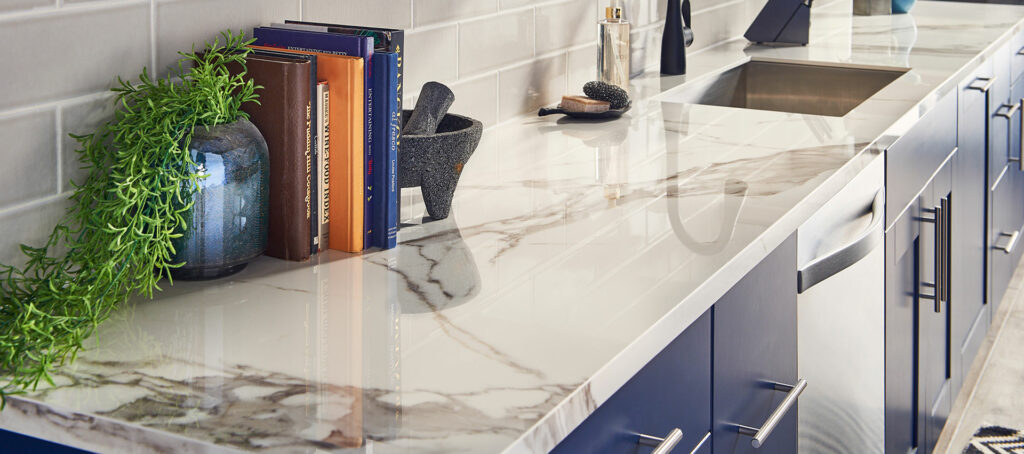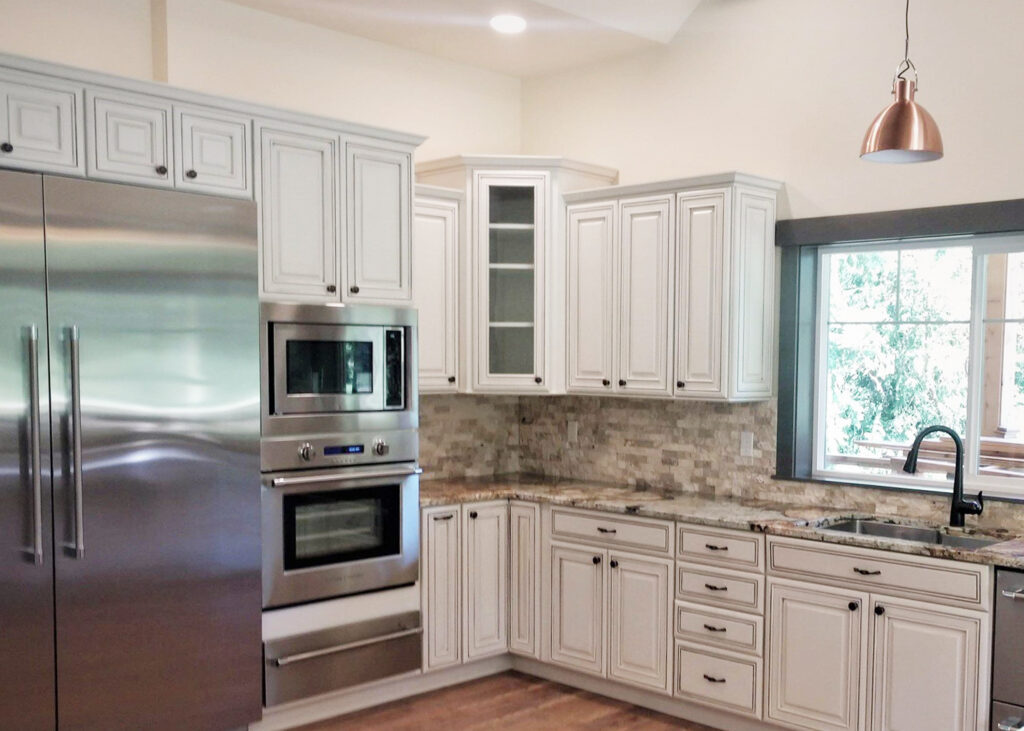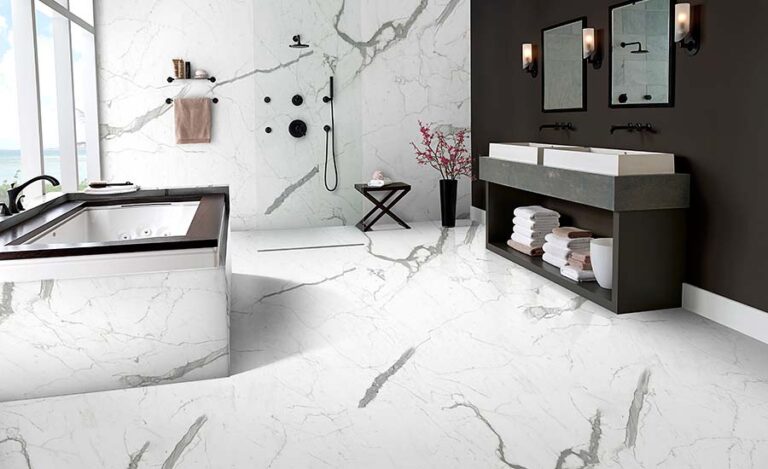You’ve probably considered both porcelain countertops and granite countertops if you’re looking for a high-quality, natural, and durable countertop material. Both materials are popular choices for homeowners and offer their own unique benefits. However, which one is the better choice for your specific needs? In this article, we’ll compare and contrast the differences between porcelain and granite countertops to help you make an informed decision.
Porcelain Countertops

Porcelain countertops are a newer addition to the countertop market but have quickly become a popular option for homeowners. Porcelain is a type of ceramic material that is made from natural clay and other raw materials. It is then fired at high temperatures to create a hard and durable surface.
Pros of Porcelain Countertops:
- Non-porous surface: Porcelain is non-porous, which means it won’t absorb liquids or stains. This makes it a great choice for kitchens and bathrooms where spills are common.
- Scratch-resistant: Porcelain is incredibly durable and scratch-resistant, which means it can withstand heavy use without showing signs of wear and tear.
- Heat-resistant: Porcelain can withstand high temperatures without cracking or warping, making it a great choice for use around stovetops and other heat sources.
Cons of Porcelain Countertops:
- Limited color options: Porcelain countertops are typically only available in a limited range of colors and patterns, which may not suit everyone’s design preferences.
- Expensive: Porcelain countertops can be more expensive than other materials, such as granite or quartz.
Granite Countertops

Granite has been a popular countertop material for many years and is known for its natural beauty and durability. It is a type of igneous rock that is formed from molten magma and has a crystalline structure.
Pros of Granite Countertops:
- Natural beauty: Granite is known for its unique and beautiful natural patterns and colors, which can add a touch of elegance to any space.
- Durable: Granite is incredibly durable and can withstand heavy use without showing signs of wear and tear.
- Wide range of colors: Granite is available in a wide range of colors and patterns, which means you’re sure to find one that suits your design preferences.
Cons of Granite Countertops:
- Porous surface: Granite is a porous material, which means it can absorb liquids and stains if not properly sealed.
- Maintenance: Granite requires regular sealing and maintenance to keep it looking its best.
- Susceptible to scratches: Granite can be scratched or chipped if exposed to heavy wear and tear or sharp objects.
Which Countertop Material is Right for Your Lifestyle?
If you’re looking for a durable and low-maintenance option, porcelain may be the better choice for you. However, if you want a natural and unique look, granite may be the way to go. Keep in mind that each option has very different design aesthetics. Granite offers a more traditionally rustic look, while porcelain can be utilized for a more modern European style. At Tops we believe that porcelain is best utilized in bathroom settings where it can be applied as wall and floor cladding in conjunction with the countertops themselves (see picture). In kitchens, porcelain is still nascent, but likely to become more popular over time as designers get more comfortable with this new style.
At Tops Countertops, we offer a wide range of countertop options, including both porcelain and granite. Our team of experts can help you choose the perfect countertop material for your needs and provide professional installation services to ensure your new countertops look and perform their best for years to come. Do you have a Puget Sound area project coming up? Contact us today to schedule a consultation!
